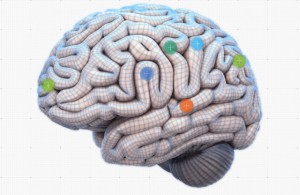Neuroeducation: Top findings to update education and learning
 Neuroeducation: 25 Findings Over 25 Years (Innovation Excellence):
Neuroeducation: 25 Findings Over 25 Years (Innovation Excellence):
“To celebrate the progress of this monumental discipline, we have compiled a list of the 25 most significant findings in neuroscience education over the past 25 years..”
1. Brain plasticity. Perhaps the most encouraging finding in all of neuroscience is that the brain changes constantly as a result of learning, and remains ‘plastic’ throughout life. Studies have shown that learning a skill changes the brain and that these changes revert when practice of the skill ceases. Hence, ‘use it or lose it’ is an important principle for lifelong learning…
3. Both nature and nurture affect the learning brain. Genetic make-up alone does not shape a person’s learning ability; genetic predisposition interacts with environmental influences at every level. For example, genes can be turned on and off by environmental factors such as diet, exposure to toxins, and social interactions. Neuroscience has the potential to help us understand the genetic predispositions as manifest in the brain of each individual, and how these predispositions (nature) can be built on through education and upbringing (nurture).
6. The brain has mechanisms for self-regulation. Understanding mechanisms underlying self-control might one day help to improve prospects for boosting this important life skill… Given that the self-reported ability to exert self-control has been found to be an important predictor of academic success, understanding the neural basis of self-control and its shaping through appropriate methods can be extremely valuable.
7. Education is a powerful form of cognitive enhancement. Cognitive enhancement usually refers to increased mental prowess—for instance, increased problem-solving ability or memory. Such enhancement is usually linked with the use of drugs or sophisticated technology. However, when compared with these means, education seems the most broadly and consistently successful cognitive enhancer of all. The steady rise in IQ scores over the last decades is thought to be at least partially due to education.
23. Metacognition enhances learning. Metacognition—sitting back and saying, “What did I learn and how did I learn that? What other connections are there? How else can I do this?” –is very important to consolidating learning, expanding on it, and making additional connections. This kind of awareness is key to developing critical thinking skills.”
To Learn More:
- Neuroeducation: 25 Findings Over 25 Years
- How learning changes your brain
- 10 Brain Tips To Teach and Learn


